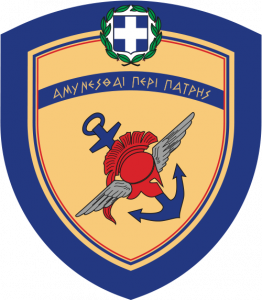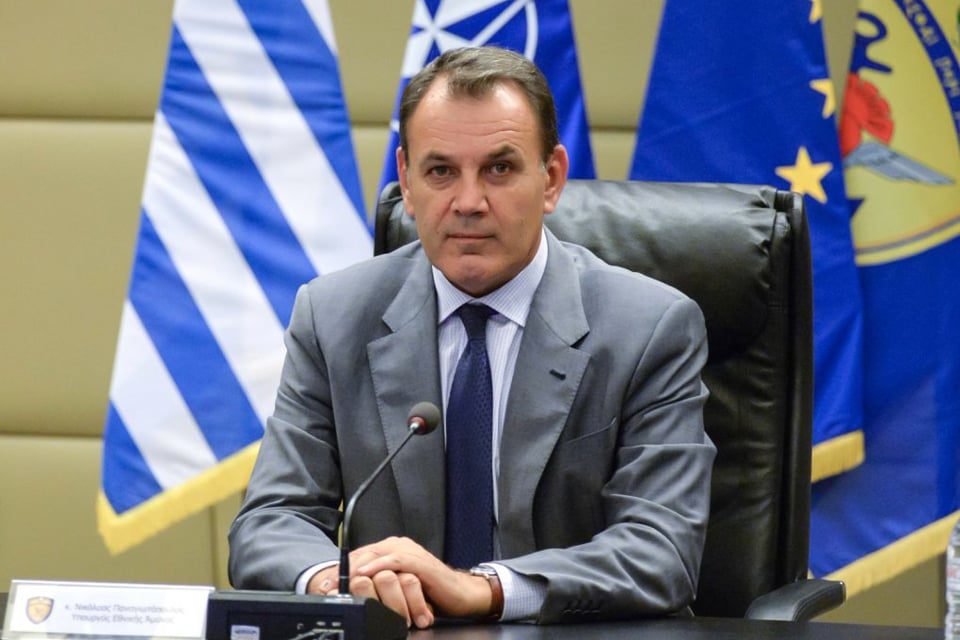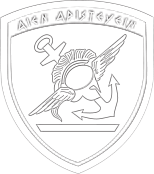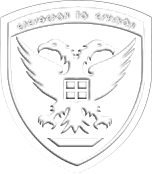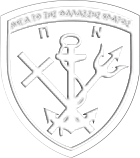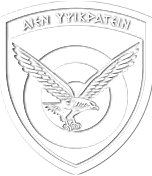STAVROS KYPRIANOU: Cyprus, Greece and Egypt reinforce the cooperation among their Armed Forces, aiming to face potential destabilization threats in the Eastern Mediterranean. Yesterday, the fourth Tri-lateral meeting took place in Cyprus and we will talk on the phone with the Greek Minister of National Defence, Mr. Nikos Panagiotopoulos. Good morning, Minister!
NIKOLAOS PANAGIOTOPOULOS: Good morning Cyprus! It is a great pleasure to address our fellow Cypriots this morning, for the first time – I must admit – despite the fact that it is not the first time I visit the island through your program.
STAVROS KYPRIANOU: We thank you and it is an honor; we have generally observed that you are the kind of Minister, Mr. Panagiotopoulos, who does not talk often.
NIKOLAOS PANAGIOTOPOULOS: The fact that I do not talk often is consistent with the Defence Minister position. The Defence Minister is not someone who must make announcements or say much. In our case, in Greece, the point is to achieve many things, because over the last two years we have been making great efforts to reinforce the total capability of the country’s Armed Forces. Of course, in the course of things, we discovered that we can do more, if we talk less. Because a lot of work had to be done. And a focused work, with no “disorientation tendencies”, is better performed when you do not talk much.
STAVROS KYPRIANOU: You are right.
NIKOLAOS PANAGIOTOPOULOS: It was a group work. I am happy that I am surrounded by a group of capable people, who love their homeland, love to work and produce results, and this group is the Political and Military leadership of the Ministry of National Defence, the Chiefs of Staffs, the Chief of HNDGS, certainly the Deputy Minister and the General Secretary and I think the results were apparent. But we are not satisfied. There are still a lot to be done. So, we must go on.
Apart from the great effort regarding the Armed Forces and I close the matter here, as an introduction, we have intensified a lot our effort in the field of Defence Diplomacy as well. We have intensive contacts not only with countries of the region, but with Allies and partners, with whom we share an understanding, like in security and stability issues in the Eastern Mediterranean region and beyond. We come closer, we talk more often. We plan things – like, for example, military exercises – and through those we reinforce and let our countries alliances and capability be heard and especially be heard worldwide.
STAVROS KYPRIANOU: So, Minister, let’s start with the aspect of Defence Diplomacy. Which are the new goals set during your fourth Tri-lateral Meeting yesterday? We would also like you to tell us, in the case of a potential threat or illegal action in the Eastern Mediterranean and the Aegean, how this mechanism is activated in practice. How deterrent is this mechanism in practice? This is its purpose, after all.
NIKOLAOS PANAGIOTOPOULOS: The important thing is to sit around the table often and talk regularly with countries that possess the “characteristics” I described, that is to share an understanding of security and stability issues in the region. More or less, we agree in our analysis with our Egyptian friends, about what constitutes a provocation and possibly a threat for security and stability; about Turkey’s role with regard to its revisionism, its provocative and violating behavior towards everyone, its increased presence with military assets in various spots of the region and about every thing that shapes this fragile and potentially dangerous security environment in the Eastern Mediterranean.
So, we agree that the countries sharing this understanding must come closer and plan an approach in the field of Defence, as well. Yesterday, we agreed to intensify our participation in military exercises, training actions, co-trainings that reinforce the interoperability and the cooperation among the Armed Forces of the three countries, because this matters too. We may potentially include exercises that can extend to different operational fields from the ones we have managed so far, such as aeronautical exercises and some Special Forces elements, so that this total cooperation framework is further reinforced.
The “MEDOUSA”, which is the basic exercise performed by us every year, is an international military event. It started as an aeronautical exercise among Cyprus, Greece and Egypt and this year it took place in Egypt, with the participation of other countries, of France and the United Arab Emirates, and observers from even more countries as well…
STAVROS KYPRIANOU: It gradually becomes an institution…
NIKOLAOS PANAGIOTOPOULOS: As you correctly point out, it is becoming a great international military institution. So, we perform more exercises, we extend the subject of these exercises and co-trainings. We invite others as well, everyone is welcome, provided they share, as I described, the same understanding of the security and stability environment in the region and we belong to a body, if you like, of countries which, through their common perceptions about security and stability, finally evolve in a pillar of security and stability in the region.
STAVROS KYPRIANOU: According to your opinion, what could go wrong?
NIKOLAOS PANAGIOTOPOULOS: Let’s say we may deal with scenarios of “heated” incidents or anything else. But this is not the issue. The issue is that we must have communication and understanding regarding military leadership as well, that is among Chiefs of Staffs. We agreed to have an even closer contact. It is already there. The Chiefs of General Staffs talk quite regularly, they analyze and exchange information. This will go on, possibly with more intense pace, and we will analyze new fields, like hybrid threats, terrorism, cyber attacks, which is definitely beyond, if you like, the conventional way of dealing with a military threat, but it relates greatly to security and stability in present times. We are close, we come even closer. We share our concerns and cooperate in the Defence Field. We analyze situations which have high volatility and influence in the geopolitical field, with arising threats or developments that increase instability in the environment, like the ones occurring in Israel nowadays. We jointly strive to organize a plan to confront them, so that the final sum is a pillar of stability and not another instability factor in the region. The margin is good.
STAVROS KYPRIANOU: Yesterday, the Cypriot Defence Minister, Mr. Charalambos Petridis, repeated once more the matters concerning violations issues of the Cypriot sovereignty at sea. It has become widely admitted that Turkey acts oppressively both at the Cypriot EEZ and the Aegean. In case Turkey repeats similar incidents and illegal actions in the Cypriot EEZ, is there a plan of confrontation in the context of these cooperations?
NIKOLAOS PANAGIOTOPOULOS: I will not refer to scenarios of military engagement, because we go too far this way. But I could say that this whole plan of Turkey’s diplomatic and political isolation pays off, because finally the Allies listen and realize how far this revisionist violative behavior of Turkey has gone. Egypt, as well as E.U. partners, share this view; not all of them, but finally most of them. The U.S.A. and the Arab states also share this view.
I think the road is finally paved to achieve this isolation, this political conviction and, therefore, Turkey’s deterrence from this kind of behaviour. I truly hope – and I always present this hope and ambition of mine – for the time to come that Turkey respects the rules. The rules regarding the relations among states are International Law and good neighboring relations. This has not happened so far. Maybe, because Turkey feels like an emerging super power, at least in our region, and it relies on its self-confidence and tries, unilaterally, to impose accomplished facts or, if you like, to increase its influence in the region. But, on its opposite, Turkey finds countries which just wish for stability and they do not want the status quo of the region to change.
These countries must come closer, to join forces regarding their beliefs and, of course, to convey a deterrent message as well. The deterrent message is not only, as I have told you, the diplomatic effort. It is also the military power. This is the meaning of this twin message: diplomacy keeps up with deterrence. It precedes the deterrence, of course. But, in the end, there is a strong deterrent power, which is no other than the powerful Armed Forces, the capable Armed Forces.
With my friend, the Cypriot Minister, we often discuss these things and I think this effort has begun to pay off, as we concluded during the last two days of his warm hospitality. It is always different for me to come to Cyprus or for my Cypriot counterpart to come to Greece respectively. We always had regular discussions and a closer and warmer contact than any other partner.
STAVROS KYPRIANOU: The people of Thessaloniki naturally love Cyprus and this is evidenced in your experience too Minister…
NIKOLAOS PANAGIOTOPOULOS: Certainly, the whole Greece loves Cyprus and it is a firm and confirmed, not only personal, belief of the Government as well that Greece undoubtedly stands by Cyprus.
STAVROS KYPRIANOU: So, a big effort has been made to reinforce the Hellenic Armed Forces over the last years, especially during your tenure in office. The air power is reinforced; it is known that Greece accepts the first “Rafale”. Efforts are also made for the Navy. Starting with the “Rafale”, has the training of Greek pilots and technicians begun? Will the delivery, the first delivery be effected next July, Minister?
NIKOLAOS PANAGIOTOPOULOS: In purchasing the eighteen “Rafale”, even our French friends and allies were caught by surprise by the speed of this purchase. This was achieved because we detected the need, a lot of people of the Ministry worked very hard to transform it into an agreement and obviously the French side helped a lot, by choosing aircraft which had been somehow used, but they were still in excellent condition, and this presupposed a good evaluation by France. On behalf of the French, we had it.
So, in less than a year since the negotiations began, we received the first aircraft in Greece. This is some kind of a record, I would say, not only with regard to the Greek standards. But this is how we had to act, due to the needs. Since January, the first four Greek pilots and the first group of technicians have been training in France. The pilots can already fly the aircraft and the second group of four, who started the initial training on the ground, has also been sent.
The first four will be the trainers of the next group in Greece. According to the schedule so far, we are about to accept the first aircraft next summer, approximately in July. From then on, very quickly, we will accept the rest of the first six aircraft, another six aircraft next year and another six the year after.
The interesting part, to conclude with “Rafale”, is that this agreement is not only a purchase agreement of aircraft. Along with the aircraft come their weapons, which are rockets with special capabilities that increase the combat efficiency of these already advanced aircraft, as well as their follow-on support on the ground. So, it is a full agreement that definitely, I would say, improves – if not completely changes – the correlations regarding the Air Force and, of course, the capabilities of our Air Force.
This is not the only action we took for the Air Force. I remind you that the program of upgrading eighty four “F-16” aircraft, “Viper” version, which is extremely advanced, is underway. Recently, I would say, we ensured the future of the Air Force, that is the Aviation Cadets training, by proceeding in a very important cooperation with the Israelis, for the establishment of an International Training Center in Kalamata, where our Aviation Cadets are trained in flying; but now, we will have the potential for a better, longer and more perfect training. Of course, the big decision regarding upgrading our Navy through the purchase of four frigates is on the way.
STAVROS KYPRIANOU: Before discussing about the Navy Minister, it is also important to say that “Mirage 2000-5” aircraft were grounded since 2012 and it seems that now they enter into the equation of air power.
NIKOLAOS PANAGIOTOPOULOS: I am glad to see that you are keeping up with developments. That was the first action and for this the contribution of the French and of my French counterpart was needed. Indeed, the “Mirage” had a spare parts flow problem since 2012, which resulted, as the years passed by, in an increasing number of aircraft to remain on the ground, but since we thought that these aircraft that can still contribute through their weapons and capabilities to the Air Force.
In December 2019 – that was when we took the first big action – we secured the relevant agreement and we passed it to the Parliament, which was the renewal of the agreement for the provision of spare parts, that is the follow-on support for these aircraft. This resulted, little by little, to an increase of their availability, and combined with the “Rafale” aircraft (that are about to arrive very soon as I have told you), they will continue to be another factor of quality superiority and differentiation in the air field.
The Air Force is truly very satisfied with the many actions taken over the past two years, but we do not stop here, since we have to cover lost ground from the times of hardship, financial difficulties and other factors. Since deterrence has its importance as well, it is assured through powerful Armed Forces. This is, at least, our effort.
STAVROS KYPRIANOU: Does this coverage also include Cyprus, to the extent that it is possible, Minister?
NIKOLAOS PANAGIOTOPOULOS: Of course! The whole plan includes Cyprus as well. It could not be otherwise: why then all the actions, the co-training, the missions, the “F-16” appearance in the skies of Cyprus? We have worked hard for this. This is our planning. And it has always been like this.
STAVROS KYPRIANOU: Before concluding, it is important to talk shortly about this dialogue between Greece and Turkey which is under process and the adoption of Confidence Building Measures. It seems that, in late May, this dialogue will start again: but at the same time, as you stated Minister, the Turkish overflights above the Aegean unfortunately will be continued and they will undermine the whole situation…
NIKOLAOS PANAGIOTOPOULOS: Yes, unfortunately this is the case. But we will persist; because it is a good thing to have the communication channel, it is a good thing to have a communication channel with the other side. Besides, it is no secret that this whole situation creates concern in NATO as well.
They approach us and say that this should not be happening; what happened last summer, the mobilization of the Fleets in the Eastern Mediterranean, causing, I would say, an alarming tension, cannot be repeated. We lived the whole situation.
We agreed that this must not happen, but in order to achieve that from now on, there must be an understanding and compliance with the International Law, which governs, as I have told you, the relations among states, and, at this stage, it is good to include good neighboring relations as well. So, we will try to start discussions with Turkey. The dialogue regarding Confidence Building Measures is conducted between military personnel; this has its importance too. The indicative date of restarting this dialogue has been specified, after the religious celebrations of Ramadan and Easter. We will discuss in the context of NATO De-escalation Mechanism, which was invented by NATO’s Secretary General Mr. Stoltenberg, also among military personnel, but we will discuss, bearing two things in mind:
First, total differences are resolved in a Political and Diplomatic level, not only through the contact of military officers. Very likely, the contact of military officers could activate communication mechanisms, in order to avoid dangerous escalations and tensions. But the total package is, I would say, a subject of discussion for Diplomats and Politicians.
Second, we can not discuss and expect a real and serious improvement, in a state of tensions, threats and unilateral actions, like for example overflights of Turkish aircraft above the Greek territory. These actions really undermine the spirit and the purpose of this dialogue, which is supposed to promote the understanding. They make things harder.
STAVROS KYPRIANOU: Do you believe there is an honest disposition, on behalf of Turkey, to initiate a procedure of improving these relations, with all this happening and with your Turkish counterpart becoming extremely judgmental about the visits of Greek officials to remote islands, bringing again the demilitarization issue to the foreground?
NIKOLAOS PANAGIOTOPOULOS: All right, we answered about those. The first and simplest answer is that we will see. We are cautious but in good faith. This is the reason we participate in these discussions. We come in good faith.
Regarding the statements, I believe, in good faith, that they address Turkey’s domestic political audience. From then on, there is no issue at all. Obviously, no foreign official, in this case a Turk, can recommend a Greek official where to travel in his country. The same applies vice versa.
Me too I cannot recommend. Under which capacity could I recommend Mr. Akar where to travel in the interior of his country? He also cannot tell me where to travel in the interior of my country. Regarding demilitarization, we have analyzed the matter lots of times. It is, I would say, an absolute sovereign right of the country to organize its territory Defence, to take measures to defend its territory, if threatened and given that this treat is well-grounded.
This is how the situation is now and therefore we strengthen the Defence on our Greek islands, as we have always done, against what we consider a threat. If circumstances change, we will reconsider the matter, but, at the moment, things are as they are and I think this is our plan, on this ground”.
